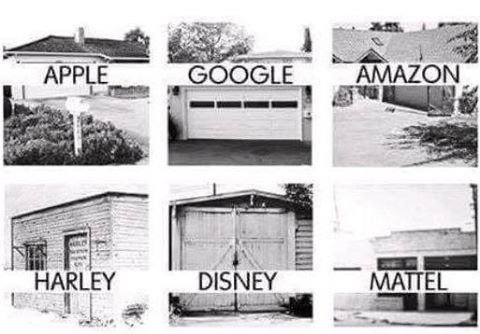Innovation
Given the financial resources available to large businesses, you’d expect them to introduce virtually all the new products that hit the market. According to the U.S Small business Administration (SBA), small companies develop more patents per employee than do larger companies.
During a recent four-year period, large firms generated 1.7 patents per hundred employees, whereas small firms generated an impressive 26.5 patents per employee. Over the years, the list of important innovations by small firms has included the airplane and air-conditioning, the defibrillator and DNA fingerprinting, oral contraceptives and overnight national delivery, the safety razor, strobe lights, and the zipper.
Small business owners are also particularly adept at finding new ways of doing old things. In 1994, for example, a young computer-science graduate working on Wall Street came up with the novel idea of selling books over the Internet. During the first year of operations, sales at Jeff Bezos’s new company -Amazon.com- reached half a million dollars. In less than twenty years, annual sales had topped $34 billion. Not only did his innovative approach to online retailing make Bezos enormously rich, but it also established a viable model for the e-commerce industry.
Why are small businesses so innovative? For one thing, they tend to offer environments that appeal to individuals with the talent to invent new products or improve the way things are done. Fast decision making is encouraged, their research programs tend to be focused, and their compensation structures typically reward top performers.
According to one SBA study, the supportive environments of small firms are roughly thirteen times more innovative per employee than the less innovation-friendly environments in which large firms traditionally operate.
The success of small businesses in fostering creativity has not gone unnoticed by big businesses. In fact, many large companies have responded by downsizing to act more like small companies. Some large organizations now have separate work units whose purpose is to spark innovation. Individuals working in these units can focus their attention on creating new products that can then be developed by the company
AISBX - A stock exchange to trade shares of small and medium-sized enterprises (SMEs) and startups
The AISBX is a new securities trading licensed platform under the supervision of the AIFC. The objective is to support SMEs to gain more access to international capital market funding resources and complete the capital funding ecosystem.

The Importance of Small Business
Small business constitutes a major force in the global and local economy

Job Creation
The majority of all workers first entered the business world working for small businesses.

Opportunities for Women and Minorities
Small business is the portal through which many people enter the economic mainstream. Business ownership allows individuals, including women and minorities, to achieve financial success, as well as pride in their accomplishments.

What Small Businesses Do for Big Businesses
Small firms complement large firms in a number of ways. They supply many of the components needed by big companies. For example, the U.S. automakers depend on more than 1,700 suppliers to provide them with the parts needed to make their cars.

Funding and expanding small businesses
Using finance to aid growth can be smart and potentially explosive, and there are many ways to grow a small business. Funding it is a big part of the puzzle and it can help any promising company go from zero to 100 in a very short time.

How Entrepreneurs Went from Garage to Fortune 500
If you are starting a business in your garage and you hear a few people laughing, remember these five entrepreneurs who started in a garage and moved on to the Fortune 500:

Does your mission statement define why your company exists?
A mission statement can be a powerful tool to help ensure your company remains consistently excellent and focused. It is your "why" - it's why you exist. Your strategy. Your core. Your vision. Your identity. Your culture. And it can steer you toward success.

7 Massive Companies Started in Tiny Unexpected Spaces
Are you working out of your garage, in your bedroom, a motel room, or a friends space that they aren’t using on the weekends? Listen, it happens. We all have to start somewhere – the big thing is that you started. So many people have had ideas for companies and just sat on them because taking that initial leap is too risky – but you did. And you’re in good company.

Trillion and billion-dollar-companies started in garage (or why we belive is small businesses)
The heroic story of going from somebody’s garage to being worth billions has got to be one of the most compelling tales within entrepreneur and startup folklore.

